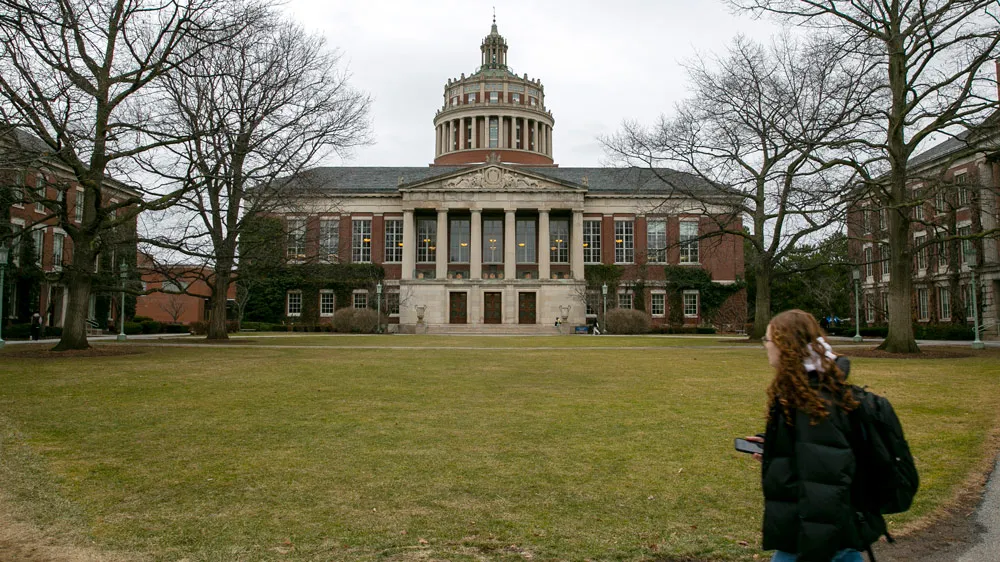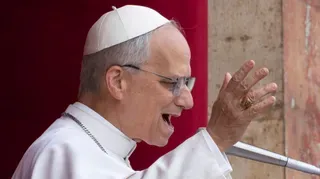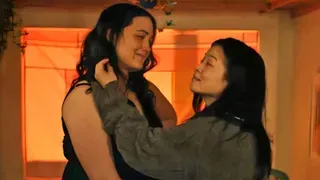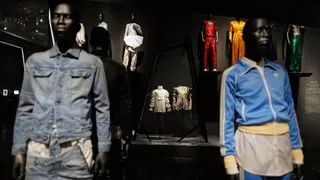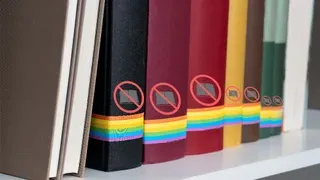November 27, 2014
Protesters Dwindle to Small Groups in Ferguson
Bobby McGuire READ TIME: 3 MIN.
FERGUSON, Mo. -- The throngs of protesters who overran Ferguson after the grand jury decision in the Michael Brown case dwindled to just a few small groups as people began cleaning up this battered community and seeking something closer to a normal routine.
Scattered demonstrations continued Wednesday, including protesters who rushed into St. Louis City Hall screaming "Shame, shame." But the tension that led to arson and looting earlier in the week seemed all but gone, two days after the announcement that a white police officer would not face charges in the fatal shooting of the black 18-year-old.
There were no reports of major confrontations or damage to property.
Around the nation, most of the protests were peaceful, but others were more unruly, including a demonstration in Oakland, California, in which protesters vandalized several businesses and in Los Angeles, where police arrested dozens of demonstrators who refused to disperse after disrupting traffic.
Meanwhile in Ferguson, business owners and residents covered up broken windows, cleared away debris and hoped the relative calm would last into the Thanksgiving holiday.
In the St. Louis suburb's historic downtown, about a dozen people painted over boarded-up windows on businesses.
"This is my Ferguson, you know?" said Kari Hobbs, 28, as she watched 17-year-old Molly Rogers paint "Love Will Win" in bright pink on a board that covered a smashed window at Cathy's Kitchen, a restaurant not far from the Ferguson Police Department.
The footage people see on the news "is such a small bit of what's happening here," Hobbs said. "There's so much donation and charity going on with the businesses that have been affected and the people that have been affected."
There were no seats inside Cathy's Kitchen, and a line had formed at the back of the building. A diverse mix of residents, business people with the day off and journalists covering the protests enjoyed a pre-Thanksgiving lunch.
Jerome Jenkins, who runs the restaurant with his wife, Cathy, said he never considered closing his doors.
"It really wasn't about wondering if the building would get torched or not," Jenkins said. "Me and my wife, we expected it to get damaged ... we decided to go home, and we would live with whatever fate would give us."
He said it was protesters who helped protect his business during Monday night's chaos, when a dozen commercial buildings were burned to the ground.
"The criminals, the looters, whatever you want to call them: They're not protesters. They wanted to vandalize the place," Jenkins said. "And the protesters locked arms together, and they surrounded our place and ... told them, `No, you're not going to touch this place.'"
After the City Hall outburst, police locked down the building and called in more than a hundred extra officers. Three people were arrested.
In downtown St. Louis, about 200 demonstrators held a mock trial of officer Darren Wilson.
An influx of National Guard troops on Tuesday helped contain the protests, although there were still nearly 60 arrests, and demonstrators set fire to a squad car.
On Wednesday night, a crowd of protesters lingered outside the Ferguson Police Department, shouting at Guard troops as light snow fell. About 100 people marched through a major intersection and blocked traffic, but the disruption lasted only a few minutes.
Troops with rifles were posted at intersections and parking lots in an area where stores were looted and burned Monday into Tuesday.
Since the grand jury's decision was announced, demonstrators have been active in other cities throughout the U.S.
In Los Angeles, police in riot gear arrested dozens of demonstrators who refused to disperse after disrupting traffic as they headed toward the county jail and the Staples Center arena. In Minneapolis, a car struck one protester and drove into a crowd of others. And in Portland, Oregon, police used pepper spray and made arrests after about 300 people interrupted bus and light rail traffic.
Also Wednesday, authorities said a 20-year-old man whose body was found inside a car in Ferguson after Monday night's riots had been intentionally set on fire.
The death of Deandre Joshua of University City is being investigated as a homicide, but police have not said whether it's connected to the violence that broke out after the grand jury announcement.
Joshua's body was found Tuesday morning at the wheel of a car parked near the apartment complex where Brown was killed. An autopsy determined that he was shot once in the head.
